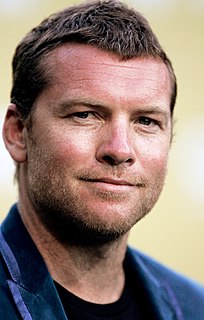A Quote by Richard Rorty
I think of an intellectual as just being bookish, being interested in history books, utopian ideas, that kind of thing.
Quote Topics
Related Quotes
I know I certainly wouldn't be writing books if it hadn't been for the feminist blogosphere, and I think that's a really amazing thing. And just the sheer power of outreach I think is incredible. It used to be that if someone was to get involved in feminism, it was probably because they were already interested. They were already interested in feminism; they were already interested in being an activist, and they found their way to like a NOW meeting or to a consciousness-raising group or something like that.
There is this thing called the university, and everybody goes there now. And there are these things called teachers who make students read this book with good ideas or that book with good ideas until that's where we get our ideas. We don't think them; we read them in books. I like Utopian talk, speculation about what our planet should be, anger about what our planet is. I think writers are the most important members of society, not just potentially but actually. Good writers must have and stand by their own ideas.
I just think that the skepticism about truth has almost completely flipped - from being something associated with generally left-leaning progressives to being something which is a tool of right-wing populists and demagogues. I think a lot of those people writing books ten years ago would now think those books are no longer needed, they've kind of been vindicated.
I am interested in the possibility that we are going to be wrong in the same way that history has indicated that mankind always is. It seems as though the history of ideas is the history of being wrong. And to me, that is a kind of continuum. It's a continual path that shows we don't always know something, but we're always shifting to a path that makes us feel more comfortable in the moment, even if that shift is wrong, and a new shift is destined to happen again.
Even more ominous ... is the fact that since the Second World War a new kind of intellectual has emerged in large numbers. ... he is only minimally interested in the proper intellectual significance of images and objects. Such people are not really intellectuals, but visuals ... A visual is more interested in style than in content ... A visual does not feel a rioting crowd being machine-gunned by the police, he simply sees a brilliant news photograph.
I'm not interested in being an intellectual or in being traditional, conventional. I'm not interested in having great wisdom. I'm not interested in those facets of the evangelical movement. I don't have to get stuff from them. I got my own stuff. If it hits you, okay. That's why I've got so many different races, classes, and such a mixture of theologies and philosophies. I've got agnostics, atheists, Buddhists, Christians, Jews, Muslims the whole spectrum.
There are some advantages to being a writer: you do generally get better as you get older. I think I understand things better. When I was a kid, I was kind of guessing at the emotion. Now I'm interested in writing more difficult books, books that confront the facts of life, of death and dying and failure - the majority of life. You write outwardly imaginative books when you're younger. When you're older you apply imagination to internal experience.








































